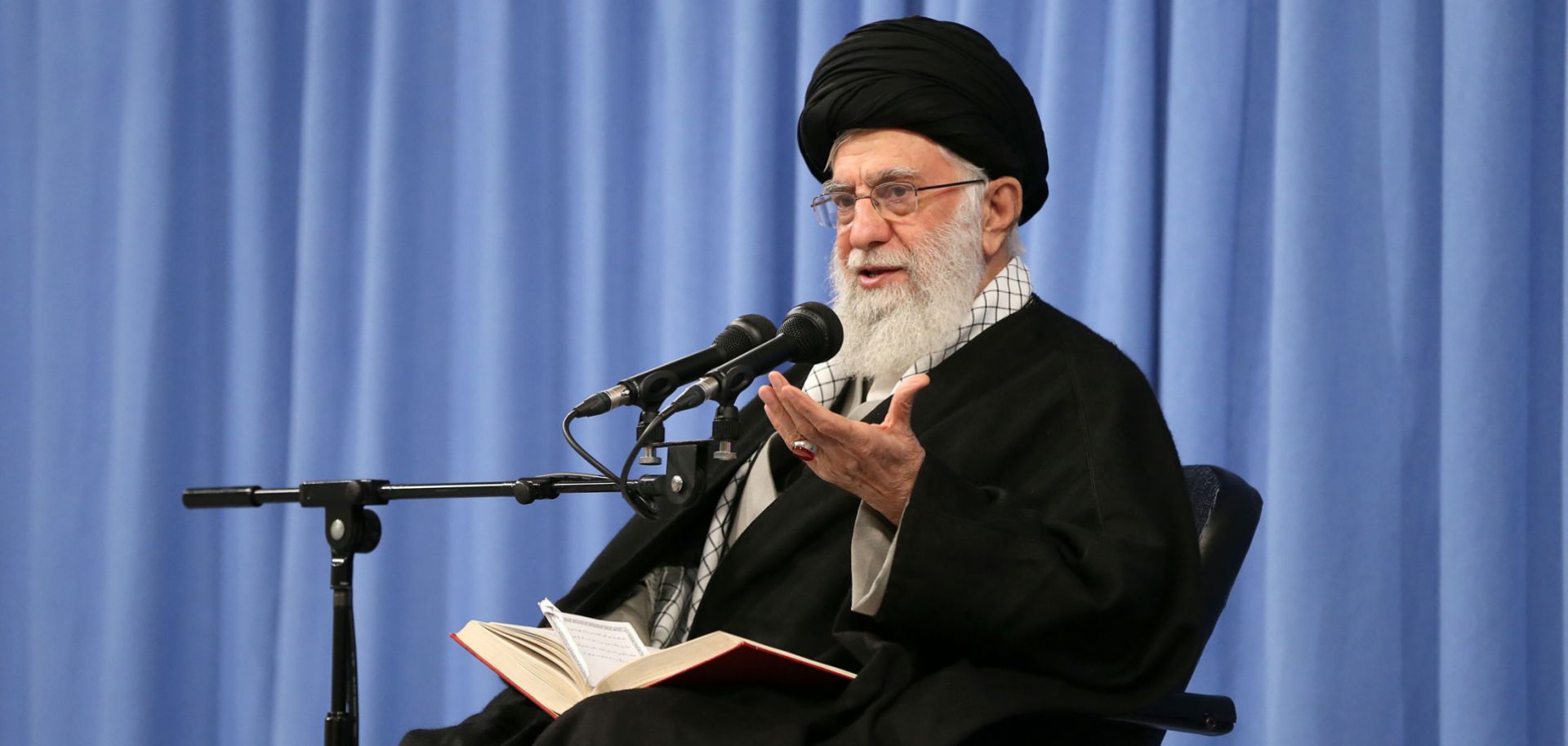ASSESSMENTS
What Conservative Control of Iran's Parliament Foretells
Mar 5, 2020 | 18:06 GMT

Iranian Supreme Leader Ayatollah Ali Khamenei speaks about the country's coronavirus outbreak and parliamentary elections in Tehran on Feb. 23, 2020.
(Iranian Supreme Leader Press Office/Anadolu Agency via Getty Images)
Highlights
- Iran's parliamentary elections on Feb. 21 produced two clear takeaways: Reformist and moderate politicians like President Hassan Rouhani currently have less power, while conservatives will hold a commanding position heading into next year's presidential election.
- Regardless of the parliamentary election results, Iran was already unlikely to change its increasingly hard-line foreign policy in the short term, which is designed in part to help counter and dissuade the United States from continuing its maximum pressure campaign.
- Dissatisfaction with their government and the economic impact from sanctions over the coming year could move Iranians to support a candidate who differs from the current offerings in the political establishment, like a populist conservative, for president.
Subscribe Now
SubscribeAlready have an account?
